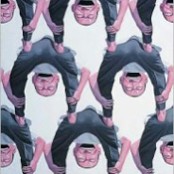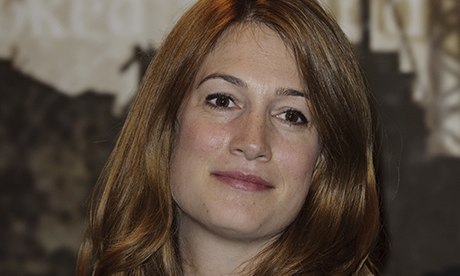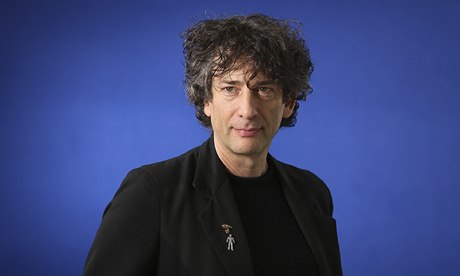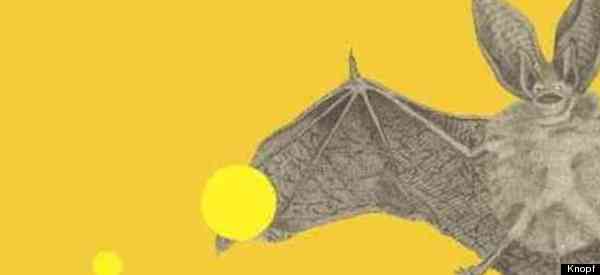Alphabetical;
How Every Letter tells a Story by Michael Rosen
(John
Murray; NZ$40.00).
Reviewed by Gordon
McLauchlan.
It is difficult to
understand that some educated people aren’t interested in language, its origins
and its use in daily life. It is, after all, fundamental to our evolution as
human beings. Without it we would still be up in the trees harrumphing at each
other, and fingering through the fur for each other’s fleas.
I don’t mean, by interest in language, those curmudgeons of
any age who suffer apoplexy at the misuse of apostrophes (which is a bit like
fingering through other’s fur for fleas); at the horror of using “like” instead
of “such as”; at the failure to use the subjunctive; or the prolific use of slang.
I rather mean the wonder at how language brought us down from the trees
in the first place and raised us from being slaves to the incomprehensible
forces of nature, and how it enabled humans to think subtle thoughts.
The greatest cultural lift after speech came from writing, which
Swedish linguist, Tore Janson, called “the most important of all the inventions
of mankind” in his excellent but rather Eurocentric language history called Speak.
With voice commands developing for internet functions, and oral
responses, the end of writing may be nigh, or its effectiveness in day to day
communication at least diminished. But I hope not.
In
the meantime, we have Michael Rosen’s very satisfying background to our present
written language: Alphabetical, subtitled
“How Every Letter Tells a Story”, which cleverly tells us whence came the
letters of the alphabet that construct our modern English words. Many have
travelled tortuous paths from ancient attempts at writing.
In summary, the first written languages used logographic
symbols for words. Some still do. The alphabet system of signs representing the
individual sounds that make up words comes to us most directly from ancient
Greek. The word itself is derived from the first two letters of their alphabet,
alpha and beta.
Early
written languages – such as Aramaic, the language Jesus spoke -- used an
alphabet of consonants in which pronunciation depended on context. The early
Greeks adopted such an alphabet from the Phoenicians – and, about 3000 years
ago, added the vowels.
That’s
not all we owe the Greeks. They gave us many of the words they composed to deal
with philosophical and scientific concepts.
This book is a work of scholarship, expanded by a writer
who is bursting with tales to tell, and Rosen is an accomplished story-teller.
Around the origins and development of each letter he spins warm and fascinating
yarns about the language in general.
In The Story of A,
he refers to “the ‘Great Vowel Shift” between 1400 and 1600 when “ahs”
changed to “ays”, adding that anyone who
doesn’t believe this “should talk to New Zealanders who are, even as I write,
in the throes of turning their ‘pins’ into ‘pens’ and their ‘pens’ to
‘pins’.”
Just
in case anyone missed that, in the story of C,
he writes: “As with all English
vowels, ‘e’ is given many jobs to do, very few of which are 100 per cent
consistent. We can be sure that in consonant-vowel-consonant formations like
‘peg’ and ‘bet’, it will be pronounced with a ‘short e’ – apart from in New
Zealand”.
That may be of special interest to us but my favourite
anecdote comes with The Story of C. During the Second World War, the Daily Telegraph invited contact from
anyone who could do their cryptic crossword in less than twelve minutes.
Twenty-five readers who responded were invited into the office to sit a new
crossword test. Five of them completed the task within the twelve minutes and
one person had only one word to go when time was up. The six were then
recruited as code-breakers at Bletchley Park.
There is a long, intriguing and amusing section under “O” about
the origins of OK . His conclusion is
it could have come from any of many possible sources – from “och aye”, from
“orl korrect”, and others.
Most books in English on the history of language tend to be
Eurocentric, and Rosen’s is inevitably so because he is writing of the Latin
alphabetic which is the basis of most European languages; but Chinese is the
language which has lasted longest in history (with Egyptian second). For
readers who want to embrace a complete world language history the best I’ve
read is Empires of the Word; A Language
History of the World by Nicholas Ostler. It is one of those books that make
one wonder how any author could possibly know so much in one lifetime.
About the reviewer:
Gordon McLauchlan is an Auckland-based writer and commentator and regular reviewer on this blog.



























